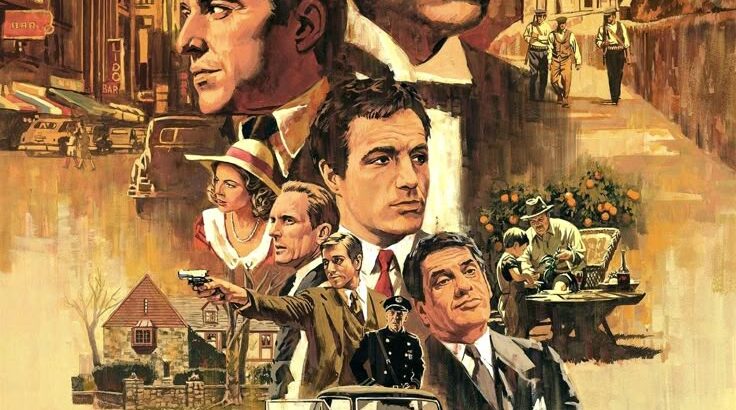I watched The Godfather for the first time at Kochoff Hall in the University Center on the Dearborn campus. I went in knowing its legendary status, but I wasn’t prepared for how much it would pull me in.
More than just a crime film, The Godfather is a story about power, loyalty, and fate, explored through the journey of Michael Corleone, played by Al Pacino. At the start, Michael is an outsider to his family’s crime empire, led by his father, Vito Corleone (Marlon Brando). Unlike his brothers—hotheaded Sonny (James Caan) and the weak-willed Fredo (John Cazale)—Michael is a decorated war hero with no interest in the mafia. At his sister Connie’s (Talia Shire) wedding, he arrives in uniform, already set apart. When he tells his fiancée, Kay Adams (Diane Keaton), “That’s my family, Kay. It’s not me,” I believed him. But as the film unfolds, it becomes clear that no matter how much he wants to stay out, he can’t escape.
Michael’s turning point comes when a rival, Virgil “The Turk” Sollozzo (Al Lettieri), orchestrates an assassination attempt on Vito. When Michael visits his injured father in the hospital, realizing he’s unguarded, he takes his first step into the family business. But it’s the restaurant scene—where Michael kills Sollozzo and corrupt police captain Mark McCluskey (Sterling Hayden)—that changes everything. The tension was unbearable, and when he finally pulled the trigger, it felt like a moment of no return. From then on, he wasn’t just protecting his family—he was becoming his father’s successor.
After fleeing to Sicily and experiencing love and loss, Michael returns home to take over. Sonny has been killed, Vito is aging, and the family needs leadership. At first, it seems like he will follow his father’s code of loyalty and restraint, but by the time we reach the Baptism Scene, Michael is something else entirely. As he stands in church renouncing Satan, his men carry out brutal murders on his orders. The contrast is chilling, and it cements him as the new Godfather, willing to do whatever it takes to secure power.
The final scene, where Kay watches as Michael’s men close the door on her, was haunting. The man who once wanted nothing to do with his family’s crimes is now its most ruthless leader. Unlike Vito, who believed in loyalty, Michael’s rule is colder, more absolute.
Watching The Godfather that night, surrounded by others equally engrossed, made the experience even more powerful. It’s not just a movie about organized crime—it’s a tragedy about transformation. Michael’s descent feels both shocking and inevitable, leaving one question lingering: was he forced into this life, or was he always destined for it?


